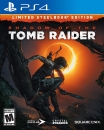| NintendoPie said:
when you mean vertical merger as opposed to a horizontal one, are you saying this because ABK are a developer/publisher and not a console manufacturer? or some other reason? |
Xbox is a console manufacturer, a Digital store, a gaming service provider, and a gaming content library subscription provider. Vertical mergers mean the acquiring entity will be integrated as part of the production capacity as a way to reduce cost and/or bolster offering.
Horizontal merger on the other end is designed to remove competition from relevant markets. Since MS was not in direct competition with ABK it cannot be considered a mainly horizontal merger. This transaction can only be seen as a horizontal merger in regard to the video game production and publishing service however that market is big enough to support such a transaction without risk of SLC.
You can see just that in the facts all attempted SLC by regulatory bodies to date are all premised on impact in markets affected by the vertical integration of ABK to Xbox (cloud market, console market)
| NintendoPie said:
i also would like to refer you to what i edited the OP with: "i view this as a bad thing because of what it poses for things to come. the entertainment industry wasn't always ruled by the few, nor the beauty industry, nor the food and beverage industry. all of this happens due to a slippery slope." |
But then your position isn't about the ABK transaction, it's about the political context that made such a transaction possible. The other industry you refer to are all very different in nature and produce different contests, the food industry for instance has some giants like Nestle, Pepsi co. but local/regional/smaller players still thrive and grow.
If you want to shift the paradigm, and I agree the context right now is not perfect and never will but, you would have to define where exactly you draw the new line versus where it is right now in a matter that is fair for everyone.
| NintendoPie said:
markets don't have to start out as an oligopoly in order to become one, but i'm sure you know that. i also would like to call into question your stimulating competition point. if by stimulating competition, you mean stimulating the competition to acquire more companies and slide closer to oligopolies, i would agree. though, i think you mean it another way. |
There are no oligopolies in the video game industry that I'm aware of and thinking this transaction makes that more possible than otherwise is just fear-mongering, there is no logical causality path that attributes this property to this transaction specifically, only a generalist 'big mergers are bad' sentiment without regards to the specifics of this transaction.
By stimulating competition I mean that MS will increase its offering, mainly GamePass and to a lesser extent Xcloud, as such it may be expected to grow in market share which can prompt other actors to react and step down from their comfortable lead position and betters their offering too. They might do so many ways, Sony for instance might just release their game day one PC or day one on their subs (I'd subscribe).
| NintendoPie said:
also, i think your comment regarding anti-competitive behavior in an IP world is definitely interesting. JWeinCom brought this up as well. do you not think our anti-trust laws are just outdated so that they don't properly serve IP, or do you not think it's possible to ever directly impact other actors in an IP-related market due to the matter of what it is? because i think we already see a case of this in other industries, such as the ones i've already brought up. |
It's harder with IP to come up with an SLC, even more so when Ips pertain to creative or artistic production such as video games. What is popular is always evolving and products are all unique. That's not to say there cannot be an SLC for IP ownership but those generally tend to look at how many Ips in a particular market are owned by a single entity and how difficult a new Ips is to create and how predatory 1 entity seeks to own a majority of those. One area where regulation could find SLC with ownership of Ips is the drugs industries. in the case of the ABK transaction, the extreme diversity of the video game industry makes it impossible to even attempt to say MS will have a controlling share of IPs with this transaction.
Other than that you can only adjudicate on Ips with the impact they have in the relevant market. That's why the current attempted SLC pertains not to the Ips directly but to the effects of those in the console market and cloud market. And those have pretty been judged insufficient or not credible by the last ruling even considering PI has a lower standard to overcome to be granted than an actual merger court case.
| NintendoPie said:
in the end, i'll use an example to try to relay my point. let's say a market has four large players that own 81% of the entire market share due to acquisition. decades before the present day, these four actors only made up 51% of the market. i don't want to spell out what that would do to a market because i believe you already know but, do you not have a problem with that? |
Maybe, but this does not portray an accurate picture of the situation at hand though. You'd have to first identify what market you are referring to. A lot of markets as fewer players than this. The PC GPU manufacturing market only has 2 major players, the X86 CPU market again has only 2 players, the smartphone OS market and digital store market only have 2, and the industry producing lithography equipment only has 1 giant actor (ASML).
console market only had 3 major players owning close to a 100% for more than 3 decades now, and this transaction does not change anything to that, it only may change how the share is distributed amongst those players and considering the one making the acquisition was the dead last those three the probability are it'll only act to restore some balance and competitiveness in that market.
Last edited by EpicRandy - on 12 July 2023































































